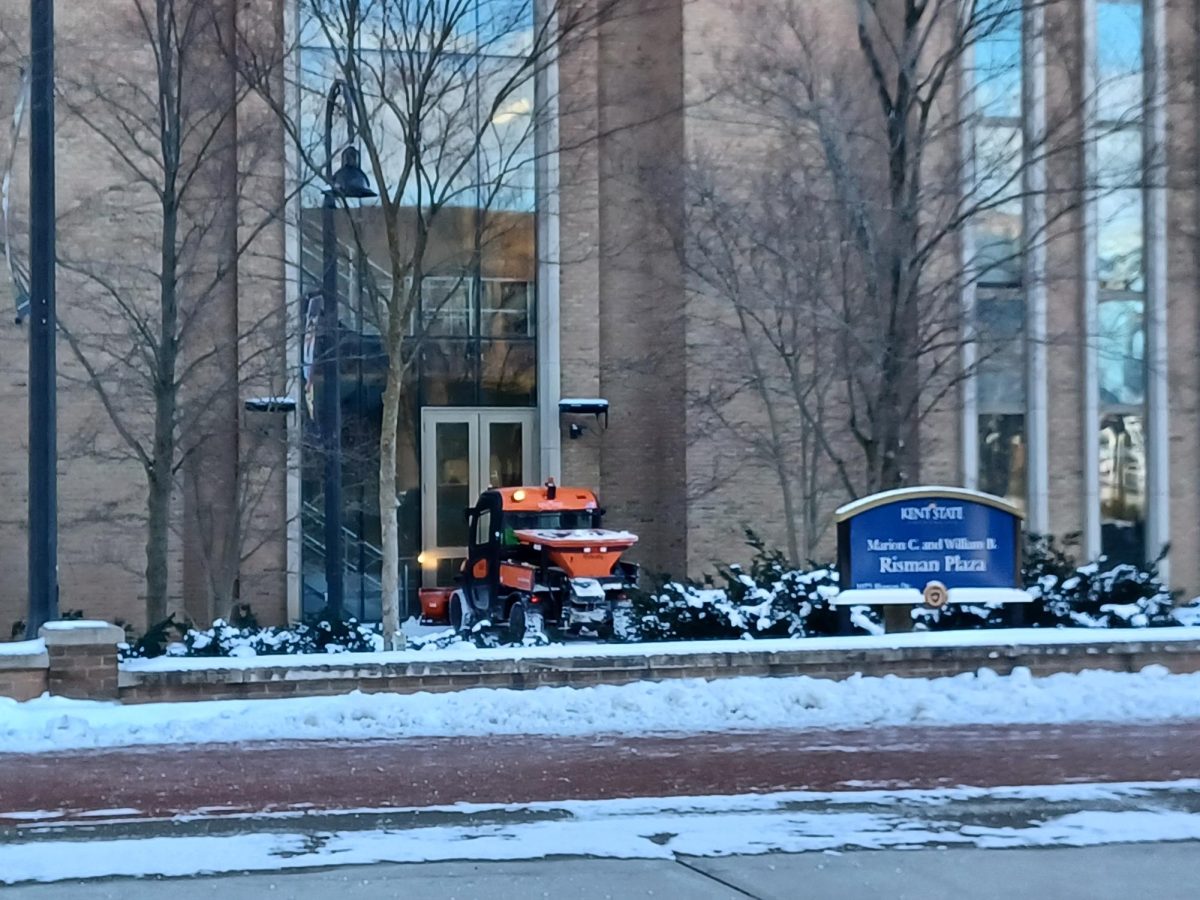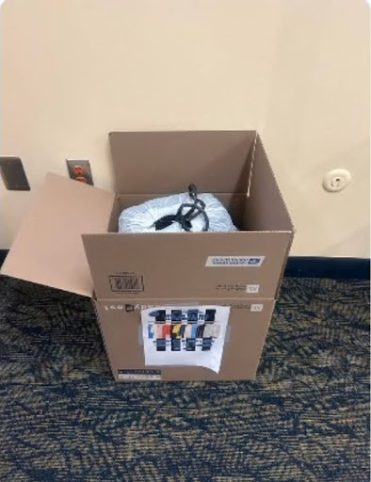Editor’s note: This story has been updated to include the university’s response to the petition and KentWired’s questions.
Over 800 students have signed an online petition in support of changing the university’s weather closure policy, questioning the university’s ability to keep students safe during harsh weather conditions.
The petition, “Change Kent State’s Weather Cancellation Policy,” criticizes the university for canceling in-person classes only when “[wind chill] temperatures reach -20 degrees” for extended periods of time.
“If public schools close due to the cold temps … why should college kids have to walk far distances?” J M, the anonymous creator of the petition, wrote on change.org.
The petition is critical of the university’s approaches to dealing with weather conditions. It states that the university’s policy needs to be “re-evaluated” and “changed” to cancel classes based on a higher wind chill temperature and by the standards of other local schools.
Some students seem to agree with this criticism, while others are more critical of it.
Radella Aronov, a freshman architecture and environmental design major, said she does not understand why it needs to be those types of negative temperatures to cancel classes.
This criticism may have resulted from a misinterpreted version of the closure policy.
The closure policy does mention “-20 degrees,” but it refers to the wind chill temperature rather than the actual temperature outside.
“I just feel like there’s a lot more ways to consider it,” Aronov said, “especially when all the schools in the area have been shut down.”
Originally, the petition gained traction after being shared by students on community Snapchat stories, sparking discussions on the precautions taken by the university during harsh winter weather.
Mentions of unsalted sidewalks, resulting in students with injured arms and knees, have been spread on Kent’s community Snapchat stories, many of which blame these predicaments on the policy. With these issues has come much consideration as to how students can urge the university to be more lenient with closures.
In an email response last week to KentWired, university’s spokesman Eric Mansfield, said those who see ice or other safety issues on campus grounds should report it to University Facilities Management at 330-672-2345.
Mansfield said, “Our grounds crews work long hours to clear snow and ice from main traffic areas first and then on to the rest of campus.”
Melisa Barrick, a sophomore in environmental studies, said she has been concerned about going out in the colder conditions because of the ice and snow that surrounded her dorm.
“I use the path behind Taylor Hall a lot to get to Bowman and McGilvery and I distinctly remember occasionally slipping and almost completely falling over because I couldn’t get any traction going down the hill and had to shuffle all the way down,” Barrick said.
Icy close-calls have been common amongst students during the start of the spring semester, leading to many questioning their peers’ safety.
Ben Scott, a sophomore biology major, said they are concerned for not only the safety of themselves, but also for those who have limited mobility.
“I can’t imagine how much worse it would be if I were injured or wheelchair-bound when Kent State has made walking normally in these conditions near impossible,” Scott said.
The university’s closure policy stated, “While the safety of our people is our priority, in general, the university does not close or cancel classes because of cold weather, winter ice and/or snow. However, on rare occasions, weather conditions may delay or cancel classes, or close campus.”
Also, in the closure policy sent to the university’s community, university officials said employees and commuters should put their safety first when deciding to go to work or class when the weather is bad.
Scott said he chose Kent campus because of his appreciation for natural beauty. Kent’s attempts for student satisfaction in his first year made him “grow a love for Kent State.” However, he has been severely disappointed this winter.
“There were many times when I would slip on ice, and I even saw a woman fully fall while walking on the sidewalks through campus,” he said. “My frustration lies in the apparent lack of effort thrown towards student safety this year. This was such a drastic change from the way that the campus handled poor walking conditions just a year before.”
The university’s policy also states, “In general, our decision will be guided by the condition of major roadways, campus roadways and sidewalks, and by our ability to plow our parking lots.”
Elyse Pickett, a sophomore in environmental studies, said she was worried about the condition of sidewalks whenever she traveled on campus.
“Every time I went outside, I played a game of guessing if they salted the sidewalks or not. It usually was not salted,” she said. “When it wasn’t salted, the snow hadn’t been plowed off either so it turned into a very slippery slush.”
The most common misconception about the closure policy is that it has to reach -25 degrees Fahrenheit for classes to be canceled.
The policy states, “For extreme cold, we typically will delay or cancel when the wind chill reaches (or is predicted to reach) -20 degrees Fahrenheit for an extended period.”
“This is a problem that should be fixed immediately and should have never happened in the first place,” Scott said.
Elaina Matricardi is a reporter. Contact her at [email protected].
Kay Steiner is a reporter. Contact him at [email protected].






Ali • Feb 6, 2024 at 3:04 am
My student said he fell flat on his back. He could’ve been seriously injured. My issue is not the weather, it’s the safety while getting to class.
Lee • Feb 1, 2024 at 5:59 pm
I respectfully submit, that the students are in university to obtain a degree to get a job in the workforce, they are no longer in high school. Employers do not cancel work for weather. “If public schools close due to the cold temps … why should college kids have to walk far distances?” – because they are now adults & have to do that in the cities while waiting for a bus/train and walking to work. WTS, the icy walkways are a hazard on campus, especially the hilly/slopey areas. If a member of the public fell in front of a store because the shop owner didn’t de-ice, they could be held liable.